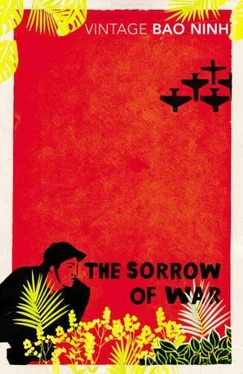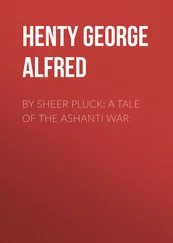Kien and Phuong had been just sixteen years old when they completed Ninth Form. Kien remembered the event well. It had been in August, the start of August. The Chu Van An school Youth Union had organised a vacation camp at Do Son, on the Tonkin Gulf. Even non-Union members like Phuong and Kien were eligible to go.
The early days of the camp were wet and dismal. The sea seemed to be perpetual foam and it rained all day long. Then one afternoon the clouds parted and the sun shone brilliantly and the mood changed.
The students unpacked their gear and began pitching tents on the foreshore. As they shot up it reminded Kien of multicoloured mushrooms suddenly sprouting between rows of casuarina trees. That evening the students made a huge campfire and started a party around it. It was an extremely happy time for them all and as the flames grew higher in the night the beer, wine and music flowed and guitars and accordions started playing as the students began to sing.
It was a memorable, happy evening around the campfire amidst the trees with a background of the darkest of seas. The night wound down slowly and pleasantly, the students gradually dropping off to sleep. Kien, close to Phuong, noticed she was a little apprehensive, and asked why.
‘Something abnormal about the sea,’ she replied evasively. ‘Frightening.’
A normal sea breeze was blowing, the waves were soft. The moonlight glittered on the waves and overhead the starry night seemed peaceful.
Kien noticed nothing unusual.
He threw some more driftwood on the campfire. Phuong gently strummed a guitar, but didn’t sing. Then they heard muffled, adult voices and heavy footsteps.
From a group of men, one stepped forward. ‘Why haven’t you doused the fire?’ he asked angrily.
‘Put it out? Why?’ asked Kien looking up.
A sailor with a rifle slung around his shoulder stood there looking down at them. ‘Put it out,’ he said, starting to kick sand over the fire.
‘Why?’
‘Don’t ask why. We got orders tonight. No fires on the beach. No lights. They order it, we carry it out. We aren’t allowed to ask why, it’s a military order.’
‘Is singing banned, too?’ asked Phuong, feigning innocence.
The sailor lowered his gun, softened his stance and sat down with them. ‘No. Don’t stop singing. That’s got to go on at all costs. Sing us a song now,’ he invited.
Two others from the shore patrol returned, sitting down and looking at Phuong. She said to the first sailor, ‘Oh, I wasn’t intending to sing. I just asked if singing was banned.’
‘Sing, all the same, sister,’ he said sadly. ‘Sing a farewell song, to us. I’ll tell you a secret; you’ll know tomorrow anyway. It’s war. America has entered the war. We’re fighting the Americans.’
Phuong nervously started picking at the guitar, sweeping her slim fingers along the strings. After taking a deep breath, as if to calm herself, she raised her head and as her shawl fell from her shoulders, began to sing sweetly. Her audience of Kien and the patrolmen sat silently, moved to sadness as the sweet words flowed:
‘The winds, they are a changin’,
the harsh winds blow in the world from tonight,
no longer the peace
we were hoping for
Our loved ones grieve, for those who’ll be lost,
no longer in peace
our children will live.
From this moment on,
the winds, they are a changin’.’
* * *
The first old sailor had begun to sniffle. He looked over sadly to beautiful Phuong and handsome Kien as though they were a doomed generation, already victims of a new, long war.
War! War! The sea roared out the message in the small hours of 5 August 1965. A small storm began far out across the Tonkin Gulf and the group looked on as distant forked lightning seemed to signal the start of the war. Nearby the other students in tents around the fire also began to wake up and slowly, realising something new was upon them, began to gather round the fire and talk over the news.
Kien and Phuong slipped out of the campfire circle to a quiet spot where they couldn’t be heard or seen. They embraced urgently. The realisation they would certainly soon be parted and their world would soon be changed heightened the desperation. They whispered innocent, passionate vows to each other, promising never to waver in their love.
And they spoke of death.
When they returned to camp it was to an unruly scene; the wind had whipped up and the distant storm had quickly found them. Blankets rolled off along the shore, sand blew in sprays and tents broke from their pegs, and just as the howling wind died down the heavens opened and the short-lived seaside vacation was washed out.
That’s how the war started, with a storm. For Kien the storm continued for nearly eleven years and even after the war his mental skies were clouded for another ten.
Now, twenty years later, he let the pictures flow back across his mental screens. He pictured himself and Phuong on the goods train, heading for Vinh. It was a crazy adventure. Kien was now a different man from then; Phuong was perhaps not so much changed.
She had in those years accumulated a mountain of sins and an avalanche of innuendo on her reputation. Yet she remained for him an enigma, someone ahead of her time in so many ways, and strangely, eternally pure.
Kien volunteered for the army in the summer of 1965, got his call-up papers in the autumn, and was soon posted to what was commonly called Long B, the military name for the battlefields of the south. Their goods train had not stopped at Phu Ly, as they expected. It turned a little east and rushed on towards Vinh, on the coast, blowing long, sorrowful whistles as it gathered speed in the night. Phu Ly, Nam Dinh, Ninh Binh, all flashed by and were left behind to the north. Everything seemed to be going so well.
‘Good for us,’ said Phuong, pleased the escapade was being prolonged. Her sense of adventure was heightened with every mile and she cuddled up to Kien, whispering to him, ‘The further we go, the more I’m lost, the better it is. We’ll see what war’s like.’
Now, it seems like fiction, some imagined story on the fringe of his war memories. But it was real enough.
The train howled on through the night, never stopping at stations. Once, on a straight run through some grain fields, it stopped for a few minutes. Several men furtively climbed aboard and the train started off again.
As the newcomers moved in, everyone moved along and space became tighter and tighter. Who were they? Soldiers? Merchants doing quick deals? Highway thieves? More smoke, more stink.
One of them imitated a station master shouting after their train speeding through his small station: ‘Doonnnngg Giiaooooooo-whosh!’
Phuong laughed softly. ‘How far to the killing fields?’ she asked.
‘So, you can’t sleep either?’ Kien replied.
‘Sleepy, but can’t sleep.’
‘Tomorrow.’
‘What if there’s no tomorrow?’
And so their intimate nonsenses had continued for the next hour, a period of delirious romantic joy in extraordinary circumstances.
On the peace train returning home Kien had met Hien, the invalid girl. They had become friendly and on the last day they had shared a hammock. Hien, sad-eyed, sweet, the girl from Nam Dinh. She’d not been able to sleep either and kept whispering sweet nothings to him as the train clattered north, towards Hanoi.
The first day of the war, with Phuong, passing Nam Dinh. The last day of the war, with Hien, herself from Nam.
The peace train, as the soldiers called it – it was officially called the Thanh Nhat, the Unification Train – passed Thanh Hoa in the glow of dawn. Easing himself from Hien’s embrace he peered out through the window. Fields, roads, mounds, villages, dewy grass, river banks, bamboo clumps, coconut plantations, ponds, hills, cemeteries, rocks, creeks, all flashed past in the dim autumn morning sky. ‘Going home, going home,’ the murmur of the tracks began to change gradually to ‘Going south, going south.’ For an eerie minute he seemed to be with Phuong, ten years earlier, in her seventeenth summer, going south, south, south.
Читать дальше












